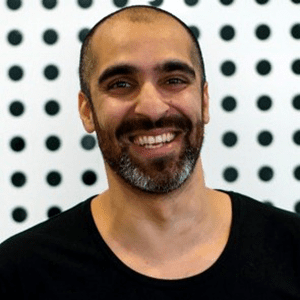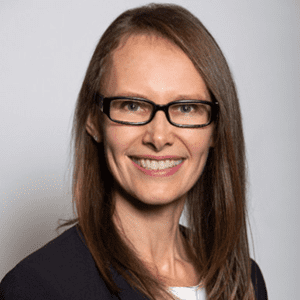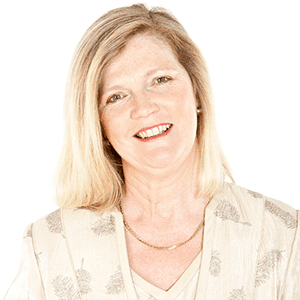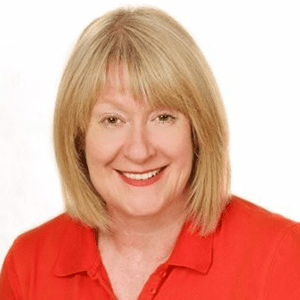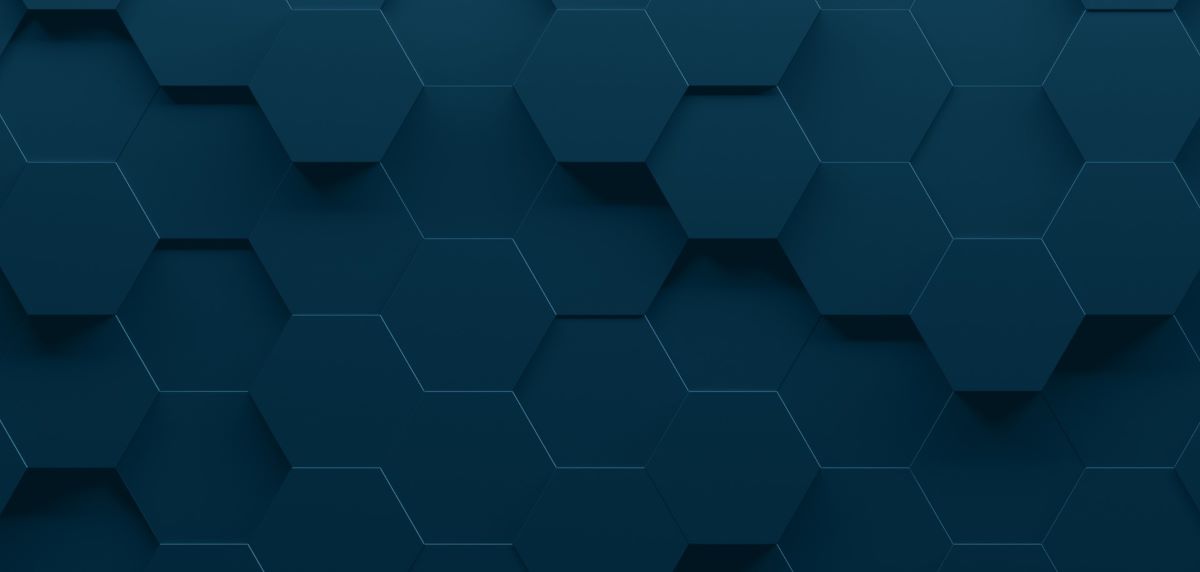
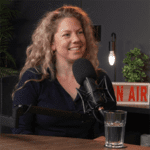
A founders journey of entrepreneurship and growth
In 2017 DJ and Harriet McCready embarked on transforming a dilapidated historic building in the NSW Blue Mountains of NSW into the first brewpub in the Blue Mountains – Mountain Culture Beer Co.
Harriet tells a great entrepreneurial story. Hear the ups and downs of building a business from scratch, with incredible strokes of luck and about the people that helped them along with way. Their controversial business plan, resilience and belief in their vision and purpose helped them stand out from an already crowded marketplace.
This episode highlights the power of luck, seizing opportunities, and the importance of strong leadership and culture within a business that paved the way for rapid growth and more to come.
We highly recommend listening to this podcast episode, as it offers a unique perspective on building a successful business, overcoming obstacles, and embracing the journey of growth.
Stephanie: Welcome to TEC Live. Stephanie Christopher here, CEO of The Executive Connection. We connect leaders with a trusted network of people who help them succeed. Something a bit different today with my guest, Harriet McCready, who’s the co-founder at Mountain Culture Beer Company, a craft beer brewery. In 2017, DJ and Harriet McCready embarked on transforming a dilapidated historic building in the New South Wales Blue Mountains into the first brew pub in the area. After 18 long months of careful renovation, they opened the doors. And that’s not how the story ends. So since this beer has won awards and has been expanded, they’ve expanded the footprint and distribution. And Harriet McCready, that’s why we’re talking to you today. Welcome to TEC Live.
Harriet: Thank you for having me, Steph.
Stephanie: That’s good. It’s exciting.
Harriet: It is exciting.
Stephanie: So we were talking before, we haven’t really had many founders on TEC Live. Founders of consulting businesses, but a founder of a product. Let’s hear your story. Do you come from a long line of brewers?
Harriet: No, I don’t. And actually, neither does my husband. I started Mountain Culture with my husband DJ, and he was a brewer back in the USA where he is from. So he had that brew experience, a brewing experience.
Stephanie: So actually, technically creating the beer?
Harriet: Correct, yes.
Stephanie: Yeah. Wow.
Harriet: And he was extremely talent. Well, he is extremely talented. And he got headhunted to start a brewery in Sydney so he came over here for that, and that’s where we met and where our story started. But I do not come from… I didn’t even drink beer, to be honest. So I don’t come from any kind of background like that. But my dad is an entrepreneur, so I guess you could say I had had that gene.
Stephanie: And what were you doing then before this?
Harriet: I was in women’s magazines before that. And then when I met DJ, that’s what I was doing. But I had seen the writing on the wall with magazines and knew that I wanted a change. Wasn’t quite sure what that change looked like.
Stephanie: Were you a writer or in sales or…
Harriet: I was a writer and an editor.
Stephanie: Which makes sense because I’ve heard that your newsletter is really good and I have to subscribe, but I hear it’s really good and good fun.
Harriet: Oh, thank you. I appreciate whoever told you that. It is definitely a brain dump for me. And take of that what you will, but yeah.
Stephanie: Yeah, right. So what made you and DJ decide to take the leap?
Harriet: Good question. I think, so as I said, I didn’t really know beer. I didn’t really drink it. I didn’t know the industry. And when I met him, he was working at this other brewery and I saw firsthand how people responded to his beer and how excited they got about it and how much it just added to their life. If they were having a barbecue, it was always like, ‘Oh, that beer was there and it was awesome.’ And I got into the fold and I started drinking his beer and I was like, ‘Oh wow, this is really good.’ This is not like your average Toohey’s or whatever that I’d grown up drinking beer was.
Stephanie: So he was with a very big beer company when he came over?
Harriet: No. And so when we got married, which is in 2016, we both left our jobs and basically decided, ‘Let’s travel for a couple of years because if not now, when? We have no responsibilities.’ So we did that. And while we were traveling, we were obviously going to lots of breweries in Germany and Austria and the rest of Europe. And we were like, ‘Hey, this is really cool. What if we started our own brewery?’ And it was during those couple of years thinking about it that the seed was planted and we were like, ‘Well, why not? Why wouldn’t we give it a go? What’s the worst that can happen?’ So that’s how it developed.
Stephanie: So you had the idea and technical capability in DJ. Did you know what it was going to involve?
Harriet: No. And I’m very glad I didn’t because had I known, I definitely wouldn’t have even attempted to do it. It is a very difficult business to start up. And it’s gotten a little bit easier in some ways today because a lot of the red tape of all the approvals have eased slightly. But back when we were doing it, it was, well, it’s very capital-intensive. You need a lot of equipment. You need the right site. We spent about three years trying to find the right site. And then obviously you need someone with the know-how. And then you’re entering an extremely, extremely crowded market so you’ve got to have that special thing that sets you apart. And because even I get overwhelmed looking at the craft beer fridges at your local bottler. So it’s not an easy business to start, but if you can get it off the ground, it’s definitely worth it.
Stephanie: I guess you started with the financial backing of some sort, and you said to me that not many craft beers are actually standalone businesses. Usually, they’re backed by one of the big companies. Tell me about that.
Harriet: Usually, you’ve got a investment pool of 50 people or more. That’s not unusual in this because like I said, it can cost a million or more just in equipment. So DJ and I weren’t that. We took out a massive loan from the bank or it felt massive. Then now obviously, we’ve expanded and that loan’s gotten a lot bigger, but back then it felt massive and we’re extremely scrappy, extremely. We bootstrapped in many ways.
And our idea was to start with a brew pub. So that model meant that instead of us brewing a beer, canning it, and putting it on shelves at local bottle shops or whatever for people to purchase instead, we would make it on site and people would come to our site and drink over the bar. So that would mean instant cash flow. That’s the model that we started with. But it was really hard to get backing for that because I think I’ve kept all the rejection letters. We had about 19 rejection letters from banks all saying, ‘You’re doing it the wrong way around. Make the product, sell the product, and then build the actual brew pub.’ Because obviously that’s the chunk of the monies or the equipment, and they’re saying you’re doing it the wrong way around.
Stephanie: So how did you sell the idea then ultimately into a bank? How did you get them across the line?
Harriet: Do you know what? That is the luckiest. One of the biggest strokes of luck we had was that there was an article written in the Blue Mountains Gazette about how we had taken over the lease of this rundown old Civic Video and how we wanted to turn it into a craft brewery.
Stephanie: And which suburb for people-
Harriet: Katoomba. In Katoomba.
Stephanie: Okay, right. In the heart of the Blue Mountains.
Harriet: It’s in the middle of the town center. So that I think was maybe front page or something of the Gazette. And some delightful banker from one of the top four who lived in Glenbrook obviously received his paper on his doorstep every Thursday morning, read it and thought, ‘Hey, that is actually a really good idea that no one’s done it in the Blue Mountains yet. I’m going to talk to these people and see what they’re about,’ and called us. And we said, ‘Yes.’ Like, ‘Hi, give us your money, please.’ And it was so fortuitous because he saw what we were trying to do. He saw the site, he could see the potential there, and that’s what kicked the whole thing off.
Stephanie: So you had the dream at this point, maybe a dream more than a vision, and it was about a partner buying into that straight away.
Harriet: Correct.
Stephanie: That’s really lucky.
Harriet: Actually, when we opened our second facility, which is in Emu Plains, it’s-
Stephanie: Western Sydney.
Harriet: Correct, Western Sydney. It is-
Stephanie: At the foothills of the mountains.
Harriet: Exactly.
Stephanie: Just helping our listeners who are…
Harriet:
When we opened that facility, again we had the same struggle where we’d only been open about 18 months in Katoomba. We had good sales, but we were always at a production cap. So they didn’t look crazy good because we couldn’t produce enough beer.
Stephanie: Because it was just through the brew pub, correct?
Harriet: Well, we were selling online at that stage because of COVID, forced us to switch to online and when it closed our doors. But we had that same issue of how are we going to get funding for this? Because again, it’s pretty audacious saying, ‘Okay, we want to get another $3 million to put all straight into equipment,’ and the questions come up again like, ‘Have you got the sales? How are you going to even achieve this?’
Stephanie: So this is through COVID, you’ve done this?
Harriet: Yeah, we found our second site in May of 2020.
Stephanie: Wow. So it’s seriously in COVID.
Harriet: Seriously in COVID.
Stephanie: First one down in New South Wales had finished, but-
Harriet: I think it was-
Stephanie: … around then.
Harriet: Was it May 2021? Do you know what?
Stephanie: It was about to start.
Harriet: Every year. Oh, it must be May of 2021 because I remember being in the site with my little baby girl.
Stephanie: Yeah, right.
Harriet: So yeah, May of 2021. And it was again, we met with a different bank and they saw the vision, they saw the traction that we were having and that we could get the sales if we had the equipment to be able to produce the beer. And again, they backed us. And again, it’s what has saved us from having to go to outside investment, really.
Stephanie: So I remember when you first spoke to TEC, and it wasn’t me you were speaking to, but there was a conversation about this special piece of equipment you had. Is that right?
Harriet: Yeah. We have lots of special pieces of equipment, actually. I guess our equipment is what we invest in because we’ve always said we wouldn’t grow for the sake of growth. We would always grow if it made the beer better. So a couple of our pieces of equipment, we’ve purchased for that very reason. So we were the first in… Well, second in the world, first in the country to get this particular piece of equipment that lowers our oxygen because you’re always fighting oxygen with the quality of your beer. And now we have a wet mill, which if your eyes glaze over, that’s okay. I know this is-
Stephanie: No, not. I’m so interested in this. Let me just focus on my attention here. Yes, you have a wet mill.
Harriet: Yes, we have a wet-
Stephanie: Mill.
Harriet: Mill, yeah. A wet mill. So with our new expansion, we’ve put in a wet mill because obviously, we’re the size now where we can have. And I think we might be the only brewer in Australia that has it. And it basically protects the grain so you get a much less bitter flavours coming through. So again, pretty innovative technology that we’re investing in.
Stephanie: Well, that’s interesting. So the original brew pub, that’s still going?
Harriet: It’s still going.
Stephanie: Katoomba.
Harriet: Yeah, it’s still going. So with this new expansion, we produce all our core range beers. Our most popular beers are distributed nationwide down at Emu Plains. And then we use the brewery Upper Katoomba as an R&D facility. We can try so much cool stuff up there, whether that’s adding all sorts of weird, wonderful ingredients or new hop styles or even different techniques. And then we figure out how that works on a smaller scale. And then if people are responding well to it or if it’s making the beer do something wonderful, then we can then put those techniques down to Emu Plains and use them at a larger volume scale.
Stephanie: How important has it been for you to get up to speed with beer?
Harriet: I’m not up to speed with beer.
Stephanie: You’re sounding more than the average person.
Harriet: Do you know what? It is crazy how much knowledge there is in beer and in producing beer. It is such a science and it’s such an art, and there’s chemistry, every sort of thing, every sort of science involved. And I definitely would not say science is my strong suit. So I’m not going to sit here and pretend I have that side of the business dialed in because I definitely don’t. All I know is what I think tastes good and what people are telling us tastes good. And that to me is all I focus on. And I let our extremely talented team of brewers and production guys focus on the how bit.
Stephanie: Yeah, makes sense. I know you have won awards. Tell us about that and how that fitted into your growth story.
Harriet: When we started the brewery, we were obviously just this tiny little brew pub in Katoomba. And we were hoping tourists and locals would come in, try the beer on tap, have a great holiday. And then our vision or our plan was that in about five years time, we would eventually can our beer and then it would be available. We would wholesale and it would be available across the country. That plan got rapidly sped up when COVID hit and forced us to close our doors and change our production from keg into can and then start mailing it through Auspost. When that happened, it meant that people all over Australia were ordering our beer, and we hadn’t anticipated that quite so early in our journey because we’d only been open for maybe five months when COVID closed our doors. So it was a very, very difficult pivot to make.
But one that has I would probably say being the cause of our success. Because when I think about our most recent and probably the biggest award we’ve ever won, which was we came first in our debut year entering something, a big awards poll called GABS Hottest 100. And we won that and we beat… Balter came second. Our good friends at Balter came second. So it was a wow moment for me because I was like, ‘How did we ever beat Balter?’ But it speaks to the fact that our beer got out there so quickly and so far and wide because we changed our business model from just selling over our own pub direct to then in cans. And that sped up the wholesale model as well because we were all ready to go with packaging and whatnot. We didn’t have the beer yet, but we were ready to go when we could increase our production volume.
Stephanie: You had the in-house capability. So let’s get back to something you said at the beginning. ‘If I knew then what I know now, I might have been a little more cautious about it or may not have done it.’ What is it? What is it that you know now about being the founder of a business, the founder of a product that wasn’t something that you didn’t have the idea of beer. What was it? What is it that you know now that it might have been different if you knew then? What would you go back and tell yourself as you’re cruising around on your two years of travel?
Harriet: It is impossible to answer that because I just can’t even tell you how much I’ve learned in the last couple of years. I have grown in so many ways that I could never have anticipated. I think yes, I’ve learned more about beer and the traditional things of marketing and sales and how to open rates on emails and what that even means and all that sort of foundational stuff of business. But more I’ve learned, I guess the things that I don’t think I would’ve learned had I followed a traditional career. I’ve learned more about financing, more about staff, more about interpersonal relationships within the… Is that the word, interpersonal? Does that sound like I’m saying I would date my staff? But what do you call that when you’re… But the HR functionality of a business. I’ve just learned an unbelievable amount. And I think that has happened because, A, I’m obviously the co-founder, but B, our growth has just been so incredibly quick that I’ve been-
Stephanie: How many staff do you have now?
Harriet: Now, we’re at almost 60 full-time staff.
Stephanie: Wow. And when you first opened?
Harriet: It was DJ and I.
Stephanie: Just the two of you?
Harriet: Yeah.
Stephanie: With someone cooking?
Harriet: It was about a year or a year and a half for us, as you mentioned, to actually open our doors.
Stephanie: Of course.
Harriet: So for that year and a half, it was just DJ and I. And then when we opened, we had one bar manager, like a chef, and then casuals, couple of casuals.
Stephanie: And now, you have 65.
Harriet: Almost 60 full-time staffs.
Stephanie: Right, almost 60. And your own brewers as well, obviously.
Harriet: Yeah. So we can now brew in one day what we could brew in an entire year at Katoomba.
Stephanie: That’s a really big growth story.
Harriet: I know. I get whiplash thinking about it, how fast we’ve-
Stephanie: Yeah. So going back to you traveling, it was learning actually how to run a business, how to be in a business.
Harriet: It was learning, I think, more than that about how to be a partner with my husband. So I think-
Stephanie: I want to get to that, actually.
Harriet: I actually do credit Europe with it was through… DJ and I are very outdoorsy people. We went to Europe and we didn’t step foot in the museum the whole two years. We were constantly climbing.
Stephanie: That’s my idea of heaven.
Harriet: We were constantly climbing. We were climbing-
Stephanie: Not the-
Harriet: … so much.
Stephanie: But not so many museums.
Harriet: Or churches or anything. But we were camping, we were climbing, we were doing any sort of adventure you could imagine. And some of those, I was very much outside of my comfort zone even though it was stuff that I loved to do. We put ourselves in some challenging situations. And through that, having to work together, for example, we were climbing Slovenia’s highest mountain and you have to go, it feels like you’re on a knife’s edge. And the dropdown is it makes me squeamish just thinking about that drop. And you are hanging on to the rope and it’s safe ostensibly, but you still have all that fear of, ‘Am I going to make it? Am I going to make it?’ And having him there and us working together to reach that top of that mountain was the idea was like, ‘Okay, hang on a minute. We actually do communicate really well. We actually…’
Stephanie: Trust.
Harriet: We do trust each other a lot. And we’ve put ourselves in some situations that I think were challenging as a couple, and we really made it through with communication, all the things. And I think those two years were like, ‘Okay. Yeah, I know you hear…’
Stephanie: It’s like bootcamp.
Harriet: Yes. And you hear all the negatives of starting a business with your partner, and I agree with a lot of them. But also there are the flip. There are positives to it. And I think we are really lucky in that we have very complementary skillset sets. He does all the brewing, like we’ve said. I do all the marketing and the designs and all that kind of stuff. We rarely cross over in our job descriptions. But having him there, having his support, trusting him and vice versa has meant I think is one of the keys to our success.
Stephanie: It’s a great story. How important do you think it is that you have a complimentary skillset rather than the two of you coming in with similar areas that you’re going to work on?
Harriet: I think it’s vital because we’re not butting heads on things. I would never go and say, ‘Excuse me, can you please change the levels of, I don’t know, this hop in the whirlpool,’ or whatever. I just would never do that. It’s not my area of expertise. It’s his. And vice versa. And I think not having that butting of the heads has meant that it’s like we keep focused on the vision and I know that he’s taking us there and I’m taking us there as well. And that’s what makes it work.
Stephanie: So back to the vision then and the strategy, things have moved quickly. And I imagine that this isn’t, ‘Great, we’re done now there.’ There’s more planning and growth and vision ahead. How do the two of you come together to plan the next stage?
Harriet: We talk about it a lot and we talk about… The biggest change, the biggest decision we had to make in recent memory was expanding to Emu Plains because when we were discussing that, it was like, ‘Hey.’ That’s when shit gets real. Brew in Katoomba fine. Easy. We can do that with our eyes closed. To increase our production to almost 8 million liters of beer per year, to have the staff that we’re going to need, everything about that would mean that, okay, it’s serious now. And having that discussion, we were both like, ‘If we’re going to do this, both of us have to be a hundred percent committed.’ It can’t be one of us is two feet in, one of us is only one foot. It has to be both of us deciding, ‘Yep, we’re going to do this and we’re going to do it together,’ and committing. And then everything else, we can handle along the way.
But I think that’s probably been key. We’ve been discussing now about what are our next steps, where do we want to go? And we’re not quite in alignment yet about both of us committing to that vision. We’ve still got different ideas about what it should look like, and we won’t take the next step until both of us are like, ‘Nope, this is truly what we both want,’ and we’re both committed.
Stephanie: I love the story of the two of you as a team. I love that. And I love the pre-launch teamwork that you did, climbing mountains in Slovenia. How do you decide when you need outside influences, decisions maybe about investment being from outside? How do you decide? How do you know when that’s right for a business?
Harriet: For DJ and I, I think we’ve always been really cognizant that we are first-time founders and that we are very green and we’ve always believed that the more heads attacking a problem, the better. So we’ve basically asked for outside help from day one or even before day one even started. We’re not afraid to ask for help. We’re not afraid to say, ‘Hey, we’ve got no idea what we’re doing here. What would you do in this situation?’ And that’s part of the reason why I reached out to TEC so early on, is because I was saying, ‘Hey, I need some help here.’ And I think for both of us, it’s been really interesting because as we’ve gotten further along the journey, we realised how much we actually did know and how much we could have just trusted our gut a bit more than what we probably did.
But having that, whether that’s other breweries, reaching out to them and then them helping us sharing their journey of how they did something which was absolutely invaluable, or another founder or someone in HR or whatever it has been, we’ve always, always been so appreciative of people who have given us advice and the time of day because it’s-
Stephanie: Another perspectives mean such a different-
Harriet: Yeah, exactly. And even if it’s not necessarily what you end up doing, just having a different viewpoint can either solidify, ‘Okay. No, I am doing the right thing here,’ or, ‘Hey, maybe I need to change tact here.’
Stephanie: Yeah, that’s really interesting. So what’s your biggest challenge right now?
Harriet: Literally biggest challenge right now is that we don’t have enough power to run our site.
Stephanie: Literally.
Harriet: That’s my biggest problem today. I think more-
Stephanie: Because of the site itself or there’s a power situation?
Harriet: The site, we are drawing so much power that we have to have a power upgrade. So I’m just waiting on Endeavor Energy to action that. That is literally my biggest challenge today. But it’s so funny when people ask that because you can ask me-
Stephanie: It’s what going on right now.
Harriet: Right, yeah. And you could ask me this tomorrow and the power situation will resolved itself and there’ll be some other problem that we’re trying to solve. Literally, I don’t know what I’m going to be facing when I wake up every day, what that challenge of the next 24 hours will be.
Stephanie: Do you find that stressful?
Harriet: I find it extremely stressful. I find running a business extremely emotionally draining. I find you’re constantly managing the highs, you’re constantly managing the lows, and…
Stephanie: And 60 staff. That’s a lot of people to be managing too.
Harriet: It’s a lot of people. And 4 1/2 million liters of beer is what we’re shooting for to produce this year. And then thinking about selling all of that beer. It’s not small. It’s not insignificant. And I think that’s also it’s why we seek outside help. It’s why I’ve done it with my partner. It’s why I try and just focus on the 24 hours in front of me and not get too far ahead of myself. Obviously I need to think about the future and I need to be ready to action something if required. But yeah, I do find it, being in business, very, very tough. Very, very rewarding, but very, very tough.
Stephanie: Well said. I think you’ve put it together very well. So if there was a big area of growth for you in business or personal growth, what would that be?
Harriet: I think my next 12 months, I’m going to be focusing on the leadership side of things. I think growing, I was a deputy of a magazine but it felt very different to this. And I was very young when I had that leadership position. I probably wasn’t given the support or the training that is required. And now, I realise the biggest part of this business is obviously the people. And we have such an amazing team and I really don’t want to fuck that up. I don’t want to be the reason why people leave or we’re not kicking our goals. I want to be the best leader I can be.
So a lot of our past has been focusing on, ‘Okay, let’s get through COVID. Let’s make sure our product is the best it can be. Let’s increase the production capacity. Let’s find another site.’ But now it’s about, ‘Okay, we’ve got all of that stuff in place. How do we make sure we’ve got a great culture? How do we maintain that culture? How do we make sure our team are feeling really motivated and engaged?’ And a lot of that comes down to DJ and I, and both of us don’t have 15 years of leadership under our belt. So that’s the next focus and probably the biggest challenge for me over the next 12 months.
Stephanie: What a story. What a story about how you came to the product, how you worked on how you were going to work together as a team with DJ, what you’ve needed to learn, and the strokes of luck. And I can’t remember if it’s Jim Collins, but someone talks about return on luck. That’s what success looks like, return on luck. So there are a couple of situations when, well, COVID was hardly luck, but what you took away from that with your distribution shifting, that someone in a bank read their newspaper that morning and thought, ‘This is really cool.’ So it’s what you’ve made of that. It’s really interesting.
Harriet: There’s another example where luck played such an awesome part in our story where we, as I mentioned, we found the site of Emu Plains, our second site. But normally, when you are opening a brewery, you’ve got about a 14-month lag time between when you press go on saying, ‘I found my brew house. I’ve had it all specked out.’ Press go and then it’s about 14 months to make it and then ship it and have it arrive.
When we found that site, we were like, ‘Ugh, we’re going to have so many months of nothing happening here but we’re going to be responsible for all the bills.’ DJ got a call from the manufacturers of brew houses saying, ‘Hey, unfortunately this brewery in the USA has just gone under so they’re not going ahead with their brew house. It’s built to the exact same specs that you guys have requested. If you want it, it’s yours. You just got to tell us and it can be in the water in a matter of weeks.’ And we were like, ‘It’s a sign. It’s a sign. How lucky.’
And so that’s why I think our growth has been so fast, because we’ve never had that lag time on production. And it meant that within four months of getting the Emu Plains site, we were brewing beer, which is insanely fast because you’ve got to change floors, you’ve got to get drainage, you’ve got to get piping, all this sort of stuff done. And we were doing it through COVID. So yeah, that was such another. We were ready to press go when that lucky happenstance moment happened.
Stephanie: There’s part of that too, and it comes down to decision-making as well. It’s how you make decisions, what’s the information you needed. I think your story is so interesting and your story about you as well as a person and the leader that you’ve become and you’re becoming. One more thing, someone sent me these. We don’t normally do product placement on TEC Live, but we don’t even have to open it.
Harriet: Thank you so much. I feel like we earned it.
Stephanie: I know. I just think a little cheers.
Harriet: Oh wait, wait, I got it.
Stephanie: Yeah, let’s get this way.
Harriet: Cheers, Steph. I am so happy.
Stephanie: And Harriet McCready, thank you so much for joining us on TEC Live.
Harriet: That is so exciting. Can I crack it?
Stephanie: Yeah, you can crack.
Harriet: It’s not refrigerated, but it’ll do.
Stephanie: So that’s TEC Live for today. CEOs are in the business of making decisions, and leadership is the art of execution. I’m Stephanie Christopher and look forward to talking to you next time.
